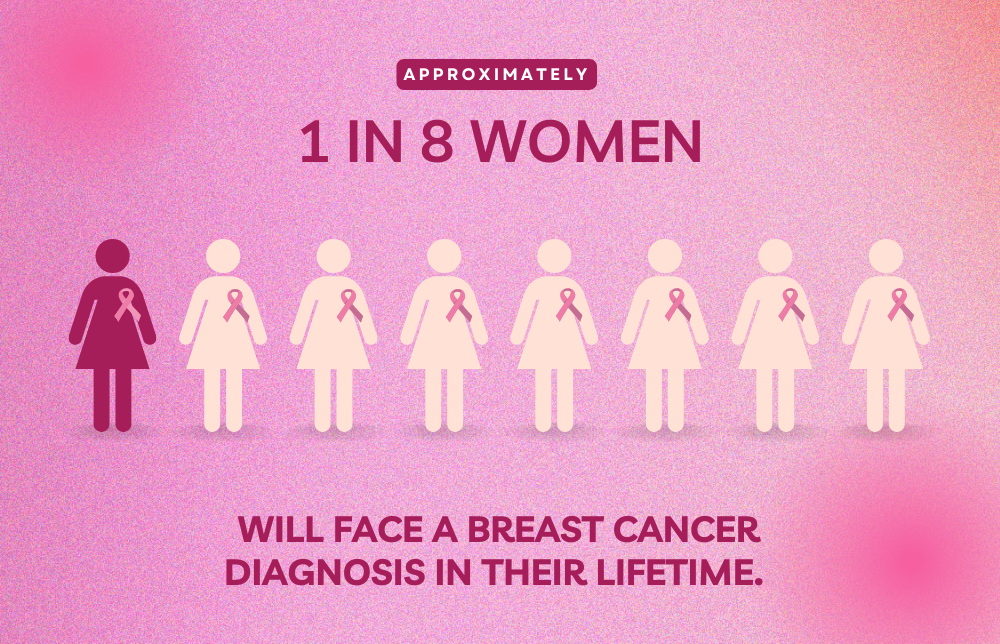
October is Breast Cancer Awareness Month, an annual campaign to raise awareness about the impact of breast cancer. Breast cancer is the most common cancer in American women, except for skin cancers. In 2022, approximately 30% of all new women cancer diagnoses will be breast cancer. In 2022, approximately 287,500 new cases of invasive breast cancer were diagnosed in women in the U.S. as well as 51,400 new cases of non-invasive (in situ) breast cancer.
Although there is no sure way to prevent breast cancer, living a healthy lifestyle may lower the risk.
Three lifestyle-related breast cancer risk factors
- There is a clear link between alcohol consumption and an increased risk of breast cancer. Having even one alcoholic drink a day may increase risk by 7% to 10%. Two to three drinks have about a 20% higher risk. Though it is best not to drink alcohol, women who do drink should limit and moderate their consumption.
- Being overweight or obese after menopause increases breast cancer risk. Maintaining a healthy weight throughout your life and avoiding excess weight gain is another important step that can help reduced the risk of developing breast cancer. Limit foods and drinks that are high in calories, fat, and/or added sugars, and that provide few nutrients.
- Evidence is growing that inactivity increases breast cancer risk, especially in women past menopause. It is recommended that adults get 150 to 300 minutes of moderate intensity or 75 to 150 minutes of vigorous intensity activity each week (or a combination of these). Getting to or going over the upper limit of 300 minutes is ideal. Limit the time you spend sitting, lying down, watching TV, and looking at your phone or computer. Doing some physical activity on top of your usual activities, no matter what your level of activity, can have many health benefits.
Other factors
Other areas that may potentially increase the risk of breast cancer include the following: not having children, not breastfeeding, birth control methods that utilize hormones, menopausal hormone therapy with estrogen (often combined with progesterone), and breast implants.
Approximately 1 in 8 women will face a breast cancer diagnosis in their lifetime. It’s just one more good reason to be ready with a Cancer plan from NCRGEA and AMBA. It can help cover the cost of treatments and related expenses like travel and other out-of-pocket costs. To learn more about Cancer Insurance, contact AMBA at 800-956-1228 or request more information at www.amba-review.com/NCRGEA


